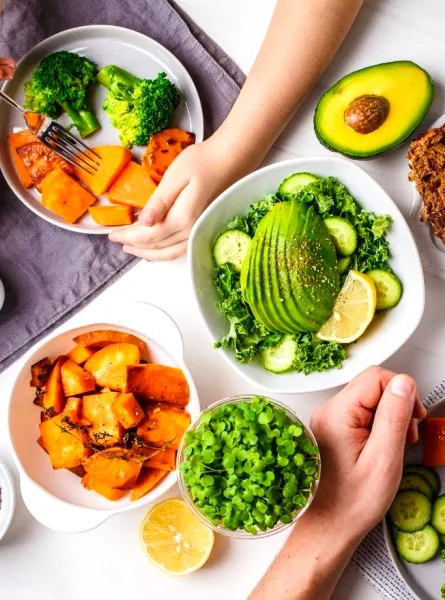
Bloating can cause discomfort and disrupt our daily lives. In this article, we provide practical tips to help reduce these unpleasant sensations. However, it's important to note that each individual is unique, and it's recommended to consult a nutritionist for personalized approaches as no two intestines are alike! We invite you to first read the article "I Have Bloating! What Does It Mean?".
1. Adopt a Balanced Meal Schedule
Opt for lighter and more frequent meals rather than large spaced-out meals. This approach helps relieve digestion by avoiding overloading your stomach. Divide your meals into three main meals per day, with optional snacks. In addition to reducing bloating, regular snacks will help maintain your energy levels throughout the day.
2. Limit Hard-to-Digest Foods
Certain foods can make digestion more difficult and lead to bloating. It is advisable to reduce the consumption of the following foods:
- Fatty foods
- Caffeinated beverages like coffee, tea, or chocolate.
- Alcohol.Spicy foods.
- Foods high in concentrated or added sugars.
- Artificial sweeteners such as sucralose, sorbitol, and mannitol.
3. Alleviate Aerophagia
Aerophagia, which involves swallowing air during swallowing, can contribute to bloating.
Reduce your eating speed:
- Sit down to eat.
- Avoid distractions during meals, such as television or phones.
- Take the time to chew and savor each bite.
Also, avoid behaviors that promote air ingestion, such as:
- Drinking with a straw.
- Consuming carbonated beverages.
- Chewing gum.
4. Take Care of Your Gut Microbiota
A healthy gut microbiota promotes proper digestive function. As explained in our article "Microbiota: 100 billion lives in our hands," a diet low in fat, added sugars, and artificial sweeteners, but rich in fiber and polyphenols, creates an environment conducive to the growth of beneficial bacteria that make up our microbiota.
5. Manage Your Stress
Stress can also affect the functioning of your digestive system. Here are some tips for managing stress:
- Practice yoga, tai chi, or meditation.
- Try guided visualization.
- Do breathing exercises.
- Ensure you have good sleep hygiene.
- Regularly engage in physical exercise.
- Consider psychotherapy if necessary.
It's important to note that stress can amplify the perception of bloating.
6. Monitor Your FODMAP Intake
If the previous tips do not yield the desired results, it may be helpful to pay attention to your FODMAP intake. FODMAPs are fermentable carbohydrates that can cause bloating symptoms. Some foods contain a high amount of FODMAPs, such as legumes, cabbage, and dairy products. However, each individual reacts differently to FODMAPs, so what may be irritating to one person's gut may be well-tolerated by another. The following article explains more about what FODMAPs are and presents other high-FODMAP foods in its appendix "Understanding FODMAPs: A Key to Relieving Digestive Symptoms" To better target the FODMAPs that cause discomfort, it is recommended to consult a nutritionist.
In conclusion, bloating can be reduced by adopting certain simple measures. However, it's important to find strategies that work best for your situation. A nutritionist can guide you in developing a dietary plan tailored to your specific needs. Remember, perseverance and experimentation are key to finding the most effective solutions to reduce bloating and restore optimal digestive comfort.
Also, read: 5 Tips to Incorporate More Fibre Into Your Diet
5 Tips for Adding Vegetables to Your Diet Without Realizing It





